Boost Your Research Game with These Best Reference and Citation Management Tools for Researchers! Stay organized and supercharge your academic success today!
Researchers face numerous challenges when it comes to managing references and citations. The process of organizing and citing relevant sources can be time-consuming and prone to errors.
Additionally, keeping track of a vast array of references from various disciplines can be overwhelming and lead to disorganized research workflows.
With the increasing volume of information available, researchers need efficient tools that can simplify the reference management process and ensure accuracy.
The consequences of inadequate reference and citation management are far-reaching. Researchers may inadvertently misattribute ideas or fail to give proper credit to the original authors, leading to issues of plagiarism or intellectual dishonesty.
Moreover, the lack of a structured reference management system can result in a loss of productivity, as valuable time is wasted on manually sorting through citations and formatting them according to different citation styles.
This not only hampers the researcher’s efficiency but also affects the quality and reliability of their work.
Fortunately, there are several reference and citation management tools available that can alleviate these challenges. These tools offer researchers a range of features to streamline the process of collecting, organizing, and citing references.
From automatically generating citations in various styles to facilitating collaboration and seamless integration with word processing software, these tools can significantly enhance researchers’ productivity and ensure the accuracy and consistency of their references.
By utilizing the best reference and citation management tools, researchers can focus more on their research and contribute to the advancement of knowledge in their respective fields.
Table of Contents
Top 10 Reference and Citation Management Tools for Researchers: In A Nutshell (2023)
| # | Reference and Citation Management Tools | Best For |
| 1. | Citationsy | Generating citations and organizing references |
| 2. | SciAI | Automating literature reviews and generating research summaries |
| 3. | Trinka | Organizing, annotating, and collaborating on research papers |
| 4. | Scholarcy | Extracting key information from research papers and creating concise summaries for efficient reading |
| 5. | CiteSmart | Generating accurate citations in various citation styles |
| 6. | Kudos | Increasing the visibility and impact of their publications through networking and sharing |
| 7. | Iris AI | Discovering relevant papers and identifying knowledge gaps in their field |
| 8. | Docear4Word | Simplifying citing and formatting references in academic documents |
| 9. | Qiqqa | Organizing, annotating, and extracting metadata from research papers |
| 10. | Cite This For Me | Creating citations in various styles, helping researchers to accurately reference their sources |
#1. Citationsy – Create citations, reference lists, and bibliographies
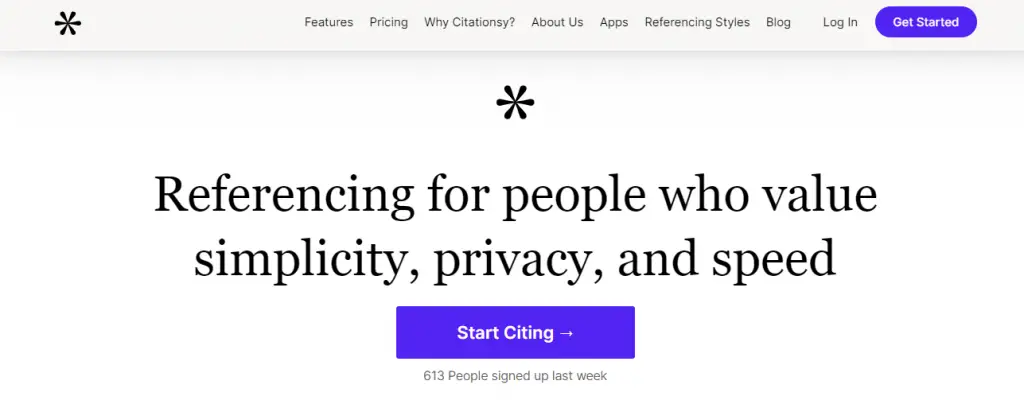
Citationsy is a widely used reference and citation management tool that researchers appreciate for its simplicity and efficiency. It offers a user-friendly interface and automates the citation generation process, allowing researchers to organize their references effortlessly.
With seamless integration into word processors, inserting citations and creating bibliographies becomes convenient. However, users should be cautious of occasional inaccuracies in metadata retrieval, which may require manual adjustments.
Additionally, while Citationsy supports numerous citation styles, some specialized styles may not be available. There have also been reports of synchronization issues, so regular data backups and verification are recommended.
Despite these considerations, Citationsy remains a favored tool among researchers due to its time-saving capabilities and effectiveness in managing references and citations.
💸Pricing
Citationsy offer the following pricing plans:
- Monthly: $9.99
- Monthly (student): $4.99
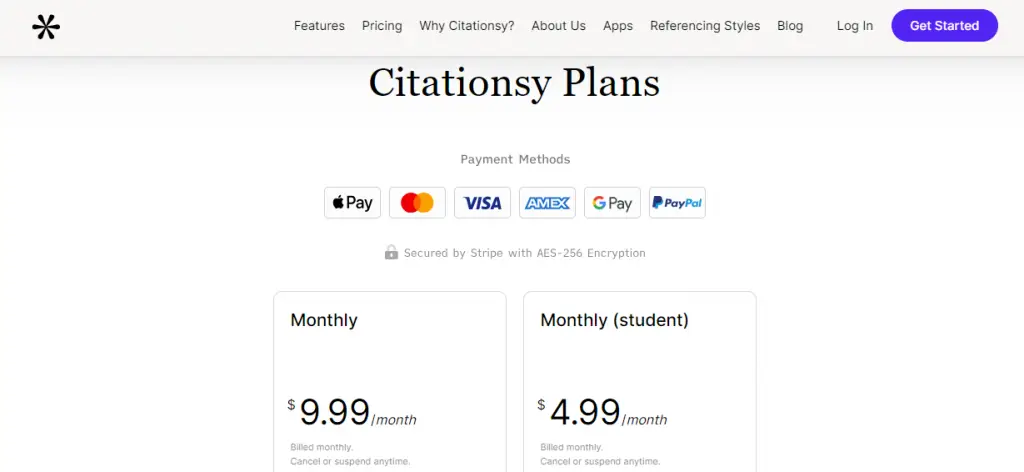
#2. SciAI – AI reference management software
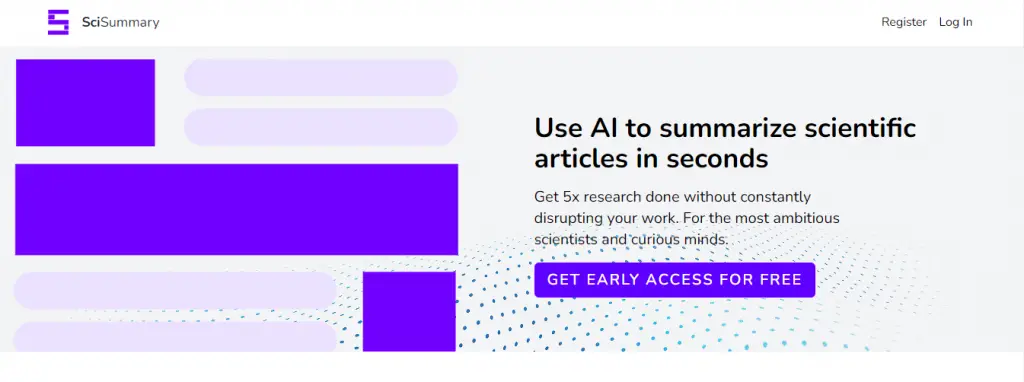
SciAI is a highly regarded reference and citation management tool that has gained popularity among researchers. With its user-friendly interface and advanced features, it simplifies the process of organizing and citing sources.
One of its key attractions is the intelligent recommendation system, which suggests relevant articles based on research papers and user preferences. This saves researchers time and helps them discover new sources to enhance their knowledge base.
However, users need to exercise caution and verify the accuracy of the recommended citations, as automated suggestions may occasionally be misleading.
It is also worth noting that SciAI may have compatibility issues with certain research databases and has limited support for non-English sources.
Despite these considerations, SciAI remains a valuable resource for researchers, offering an efficient and intelligent solution for managing references and citations in scholarly works.
#3. Trinka: An AI-driven language editing and reference management platform
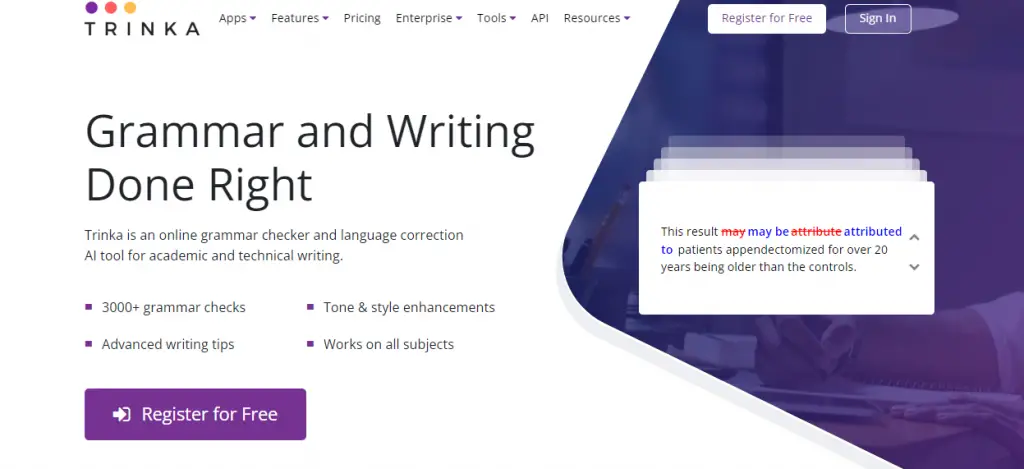
Trinka is a popular reference and citation management tool for researchers, known for its user-friendly interface and robust features. It simplifies the process of organizing, managing, and citing references in scholarly papers.
With efficient search capabilities and seamless integration with popular reference styles, Trinka helps researchers discover relevant literature and generate accurate citations and bibliographies in different formats. Its collaborative features also facilitate teamwork and enhance productivity.
While Trinka offers numerous benefits, there are a few things to consider. The free version has limitations on the number of references, which may require upgrading to a premium subscription.
Some users have reported occasional compatibility issues when importing references from specific databases or citation formats, but the development team actively addresses these issues through regular updates.
Overall, Trinka remains a favored choice for researchers in need of a reliable and user-friendly reference and citation management tool.
💸Pricing
- Basic
- Premium: $6.67/month
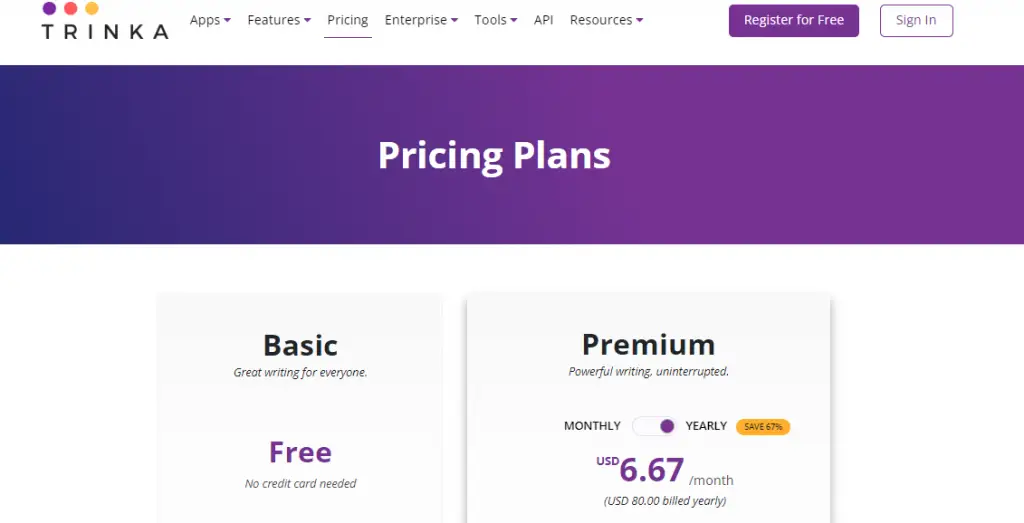
#4. Scholarcy – Summarize your literature through AI
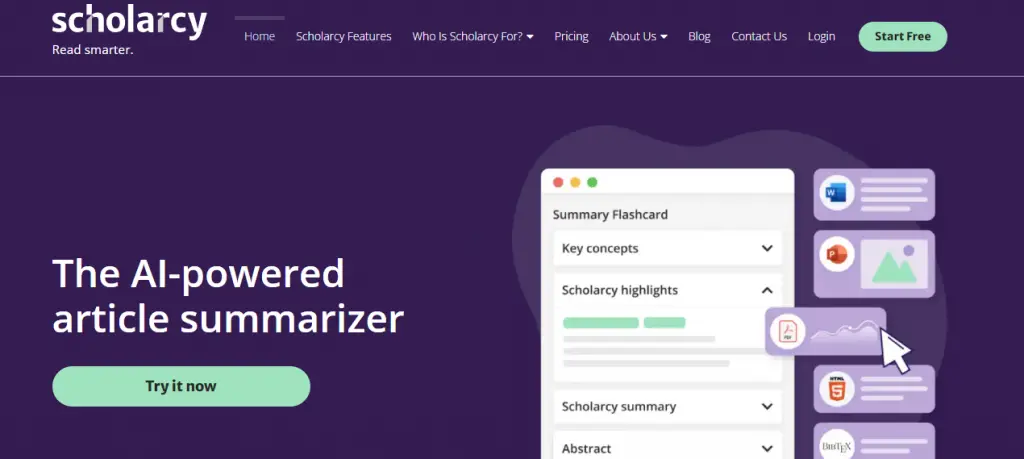
Scholarcy is a powerful literature review tool that helps researchers streamline their work. By employing advanced algorithms and natural language processing, it efficiently analyzes and summarizes academic papers, saving researchers valuable time.
Scholarcy’s ability to extract key information and generate concise summaries makes it an attractive option for scholars looking to quickly grasp the main concepts and findings of multiple papers.
However, it is important to exercise caution when relying solely on Scholarcy. While it provides a useful starting point, engaging with the original research papers is crucial to ensure a comprehensive understanding.
Scholarcy’s automated summarization may not capture the nuanced interpretations or contextual information presented in the full text.
Researchers should also be aware that certain types of documents, particularly those with heavy mathematical or technical content, may pose challenges for the tool.
Despite these considerations, Scholarcy remains a valuable resource for researchers seeking to enhance their literature review process and improve overall efficiency.
💸Pricing
Scholarcy offer the following pricing plans:
- Browser Extension and Flashcards: Free
- Personal Library: $9.99
- Academic Institution License: $8K+

#5. CiteSmart – AI powered – Cite right with CiteSmart!

CiteSmart is a popular reference and citation management tool for researchers. It offers a user-friendly interface and powerful features that streamline the citation process.
Researchers appreciate CiteSmart for its ability to import references from databases, generate citations in different styles, and create bibliographies with ease. Its advanced search capabilities and auto-suggest function also save valuable time when locating relevant sources.
However, users should be cautious of potential limitations, such as ensuring the desired citation style is available and accurate. It’s important to double-check imported references for accuracy and completeness, as occasional errors or missing information can occur.
Additionally, occasional technical glitches and synchronization issues may arise. Overall, CiteSmart provides an efficient and reliable solution for managing references and citations, but it’s important to remain vigilant for potential inaccuracies and technical hiccups.
#6. Kudos – Increase your visibility and impact

Kudos is a popular reference and citation management tool designed to help researchers maximize the impact of their work. With its user-friendly interface and valuable features, it simplifies the process of organizing references and citations.
Additionally, Kudos provides a platform to create plain language summaries, increasing research visibility and accessibility. However, researchers should be aware that while Kudos offers comprehensive support, it may lack advanced features found in other tools.
Some users have reported occasional technical glitches and limitations in export formats for references. Despite these issues, Kudos remains a valuable tool for researchers looking to enhance the discoverability of their work.
#7. Iris AI – Introducing the researcher workspace
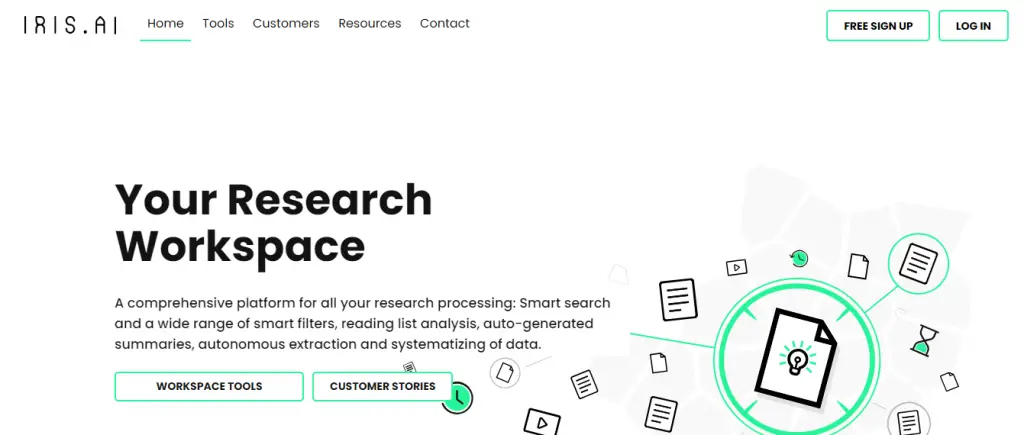
Iris AI is a cutting-edge reference and citation management tool for researchers. Using AI algorithms, it revolutionizes literature discovery and organization.
Researchers appreciate Iris AI for its ability to extract key information from extensive scientific literature, saving them time and effort in the literature review process. With its intuitive interface and powerful search capabilities, it streamlines the research workflow.
However, users should exercise caution when relying on Iris AI. Like any AI-driven tool, there is a possibility of occasional inaccuracies in search results or recommendations. Researchers must verify information retrieved through Iris AI before fully relying on it.
Additionally, some users have reported occasional glitches or technical issues, but the development team is actively addressing these concerns through regular updates.
Overall, Iris AI offers valuable assistance to researchers, enhancing their reference and citation management with its efficient literature discovery and organization features.
💸Pricing
Iris AI offers different pricing plans to cater to various user needs:
- Basic: Free
- Premium: Monthly ($82.41), Quarterly ($222.49), and Annual ($791.07)
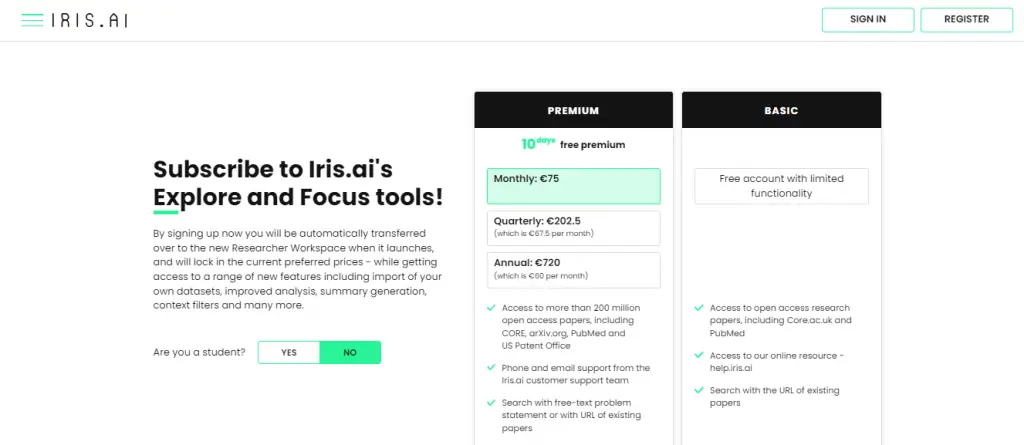
#8. Docear4Word – An AI-based reference management add-in for Microsoft Word
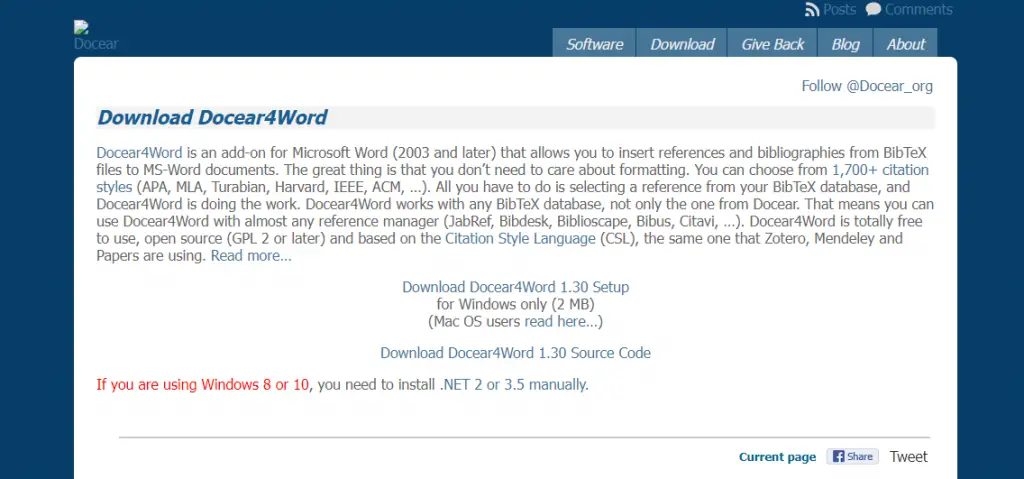
Docear4Word is a valuable reference and citation management tool catered specifically to researchers. With seamless integration into Microsoft Word, it offers a convenient solution for organizing references and generating citations in academic papers.
Researchers appreciate this tool for its user-friendly interface, intuitive features, and a wide range of citation styles, which ensure accurate formatting according to various academic standards.
Docear4Word simplifies the process of managing references, enabling researchers to easily keep track of their sources.
While Docear4Word offers numerous benefits, there are a couple of considerations to keep in mind. Firstly, it is compatible only with Windows-based systems, as it requires Microsoft Word to be installed.
Additionally, as a plugin, it may not provide the same extensive functionalities as standalone reference management tools. Users should be cautious about potential compatibility conflicts with other Word plugins and ensure compatibility with complex document formatting.
Keeping the tool updated will minimize any known issues and maximize its effectiveness in facilitating research and writing tasks.
#9. Qiqqa – Open Source Reference Software for Researchers
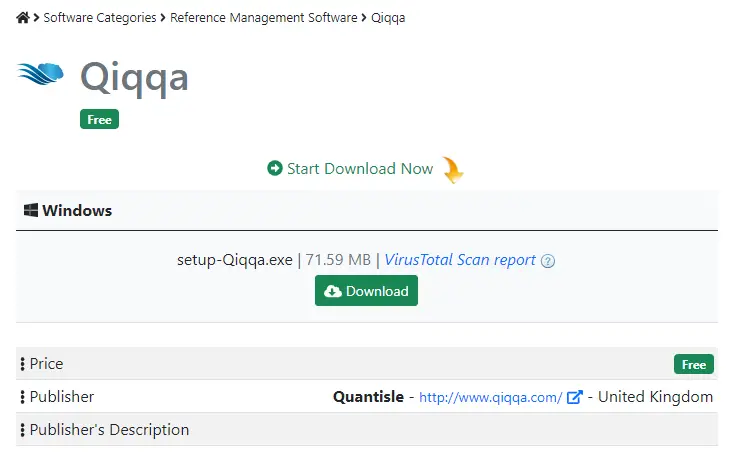
Qiqqa is a popular reference and citation management tool that offers researchers a range of features to streamline their workflow. With its comprehensive library management system, users can easily import, organize, and annotate research materials, saving time during literature reviews.
The advanced search capabilities allow for quick retrieval of relevant information. However, users should be mindful of a few aspects. Qiqqa has a learning curve that may require some initial investment, and performance can be slow when handling large libraries.
Synchronization issues between devices have been reported, and customer support may be limited. Nevertheless, Qiqqa remains a favored choice among researchers looking for a feature-rich tool to optimize their research endeavors.
#10. Cite This For Me – Harvard, APA, MLA reference generator
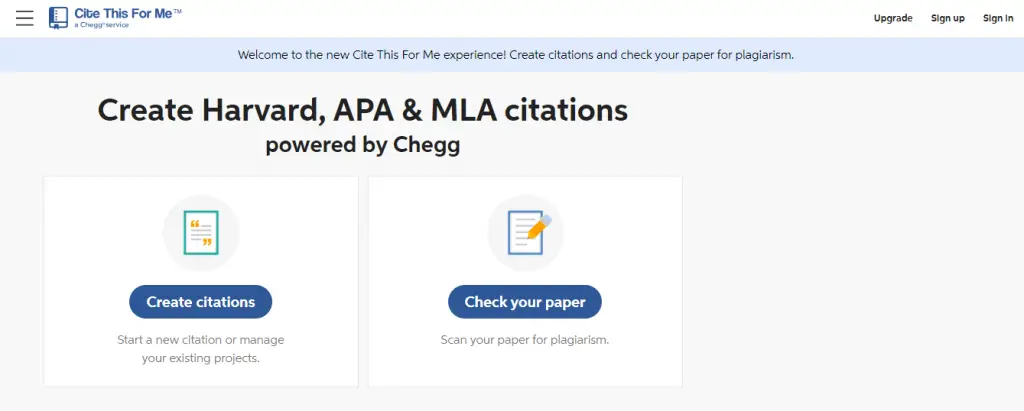
“Cite This For Me” is a widely used reference and citation management tool for researchers. Its popularity stems from its user-friendly interface and time-saving capabilities.
The tool simplifies the citation process by automatically generating citations in various styles and from different sources, such as books, journals, and websites. It also offers a browser extension for quick citing of web pages during research.
However, users should be cautious when using “Cite This For Me.” While it provides a free version, advanced features require a subscription. Additionally, it’s important to double-check the accuracy and completeness of the generated citations, as automated tools can occasionally make errors.
Some users have reported difficulties finding less common sources in the database and occasional formatting issues. Despite these concerns, “Cite This For Me” remains a valuable tool for efficiently managing and generating citations, saving researchers time and effort in their scholarly endeavors.
💸Pricing
“Cite This For Me” offers different pricing plans to suit various needs:
- Full Version, Unlimited Use: $19.99
- Full Version, Monthly Plan: $6.99/month
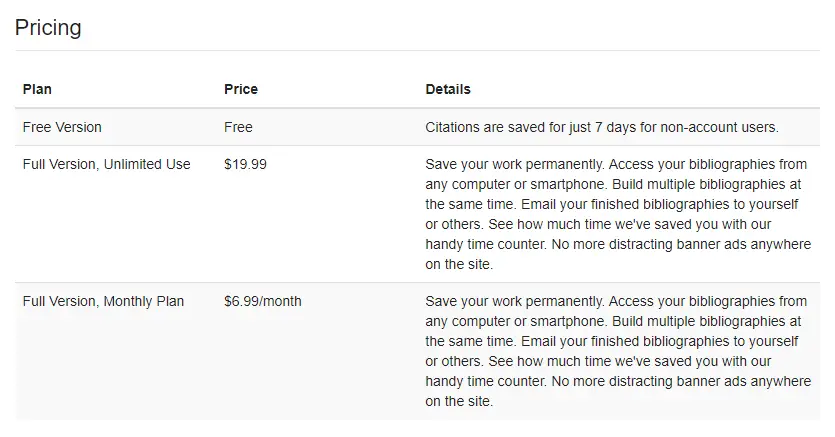
Established Traditional Reference and Citation Management Tools
#1. EndNote – The best reference management tool
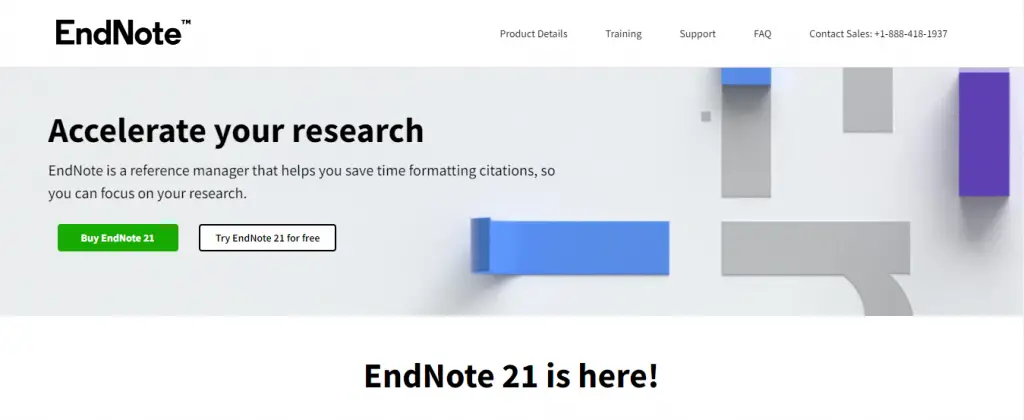
EndNote is a popular literature review tool embraced by researchers for its ability to efficiently manage references, citations, and bibliographies.
With its user-friendly interface and robust features, it enables users to create personalized libraries of references, simplifying the searching and retrieval process. Integration with word processors allows for automated citation and bibliography generation in various citation styles.
However, users should be prepared for a learning curve to maximize its functionalities and mitigate potential frustrations.
Compatibility issues with different operating systems and occasional glitches in importing references or formatting citations are known issues, emphasizing the importance of double-checking outputs.
Overall, EndNote proves to be a valuable companion for researchers seeking to organize their literature and optimize their academic writing, with vigilance needed to address potential hiccups.
💸Pricing
For pricing, contact their sales team.
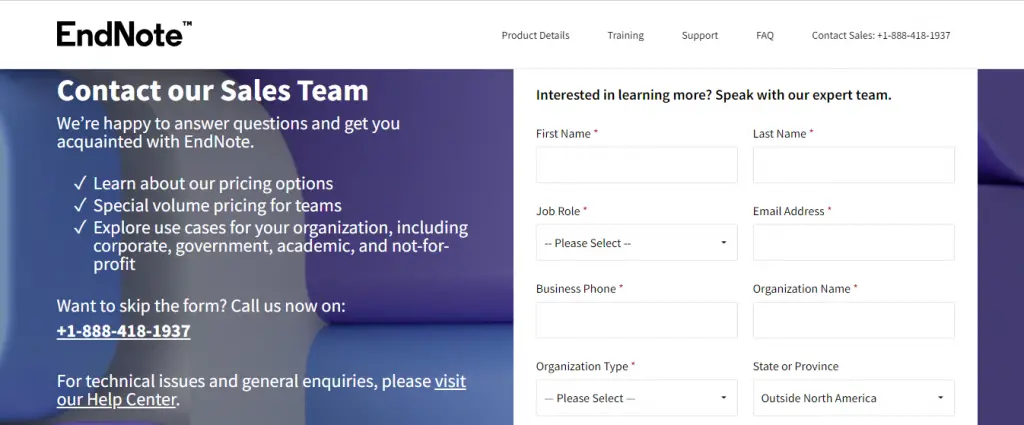
#2. Mendeley – Reference management software
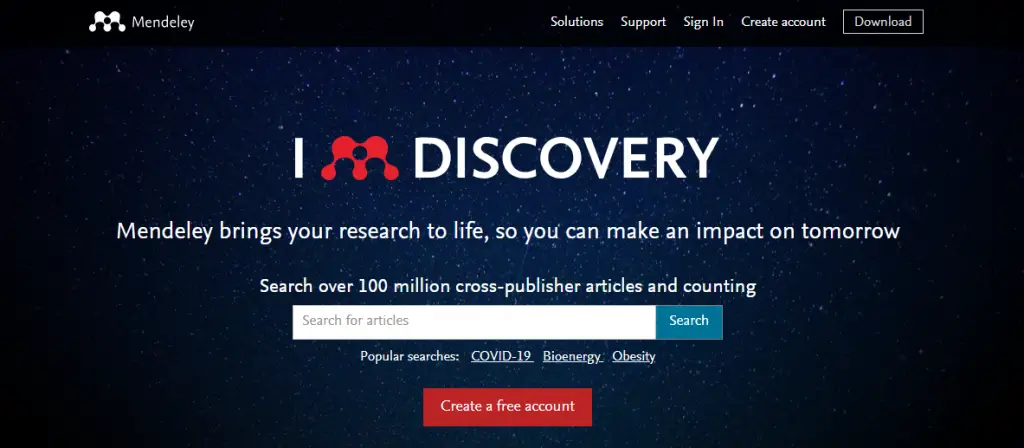
Mendeley reference manager is a highly regarded literature review tool that researchers rely on for its efficient organization and citation management features. With its user-friendly interface, Mendeley simplifies the process of importing, organizing, and annotating academic papers.
It’s a popular choice for researchers due to its reference management system, collaborative capabilities, and built-in PDF reader.
However, there are a few considerations to keep in mind when using Mendeley. The free version has limited storage capacity, so users may need to subscribe to a premium plan for expanded storage. Additionally, as a cloud-based service, users should prioritize the security and privacy of their research data.
While occasional synchronization issues and formatting inconsistencies have been reported, Mendeley remains an indispensable tool for literature review and reference management.
Its ability to streamline the research process and facilitate collaboration makes it a go-to resource for researchers seeking a comprehensive solution for their academic endeavors.
💸Pricing
- Pricing is not publicly available, you need to sign up for the premium version.
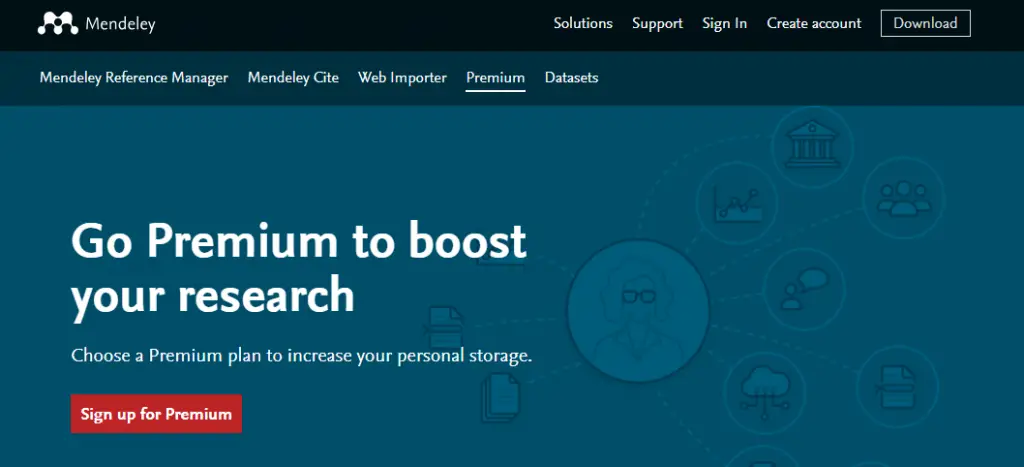
#3. Zotero – Your personal research assistant
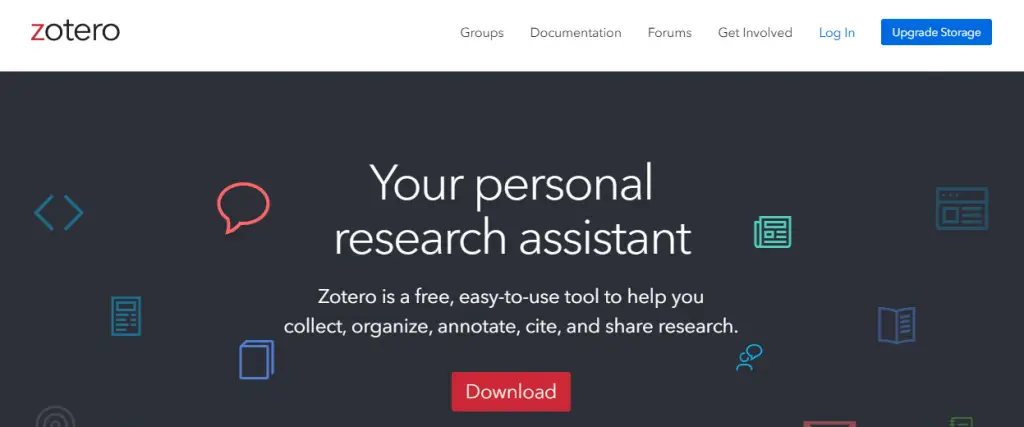
Zotero is a game-changing literature review tool that has transformed the research landscape. It simplifies the gathering, organizing, and citing of information, making it the preferred choice for researchers worldwide.
With its user-friendly interface and robust features, Zotero enables seamless capture and storage of references from various sources, eliminating the hassle of manual entry.
It also offers powerful organization capabilities, allowing users to create custom libraries, tag entries, and generate citations in multiple styles. However, users should be mindful of relying solely on Zotero’s automated citation generation and double-check citations for accuracy.
While occasional compatibility issues and updates exist, the benefits of using Zotero far outweigh any drawbacks. Overall, Zotero empowers researchers with an indispensable tool for efficient literature review, significantly enhancing the research process.
💸Pricing
- Zotero offers the following pricing plans:
- 300 MB – Free
- 2 GB $20/year (equal to $1.67 per month)
- 6 GB $60/year (equal to $5 per month)
- Unlimited $120/year (equal to $10 per month)
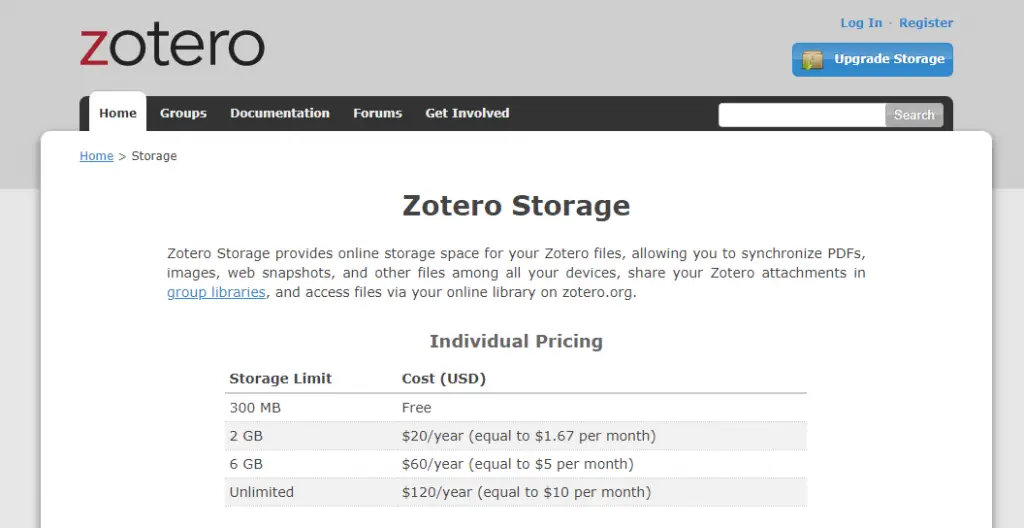
#4. RefWorks – Web-based reference management service
Note: As of June 30, 2023, legacy RefWorks is no longer available. It’s part of https://www.proquest.com now.
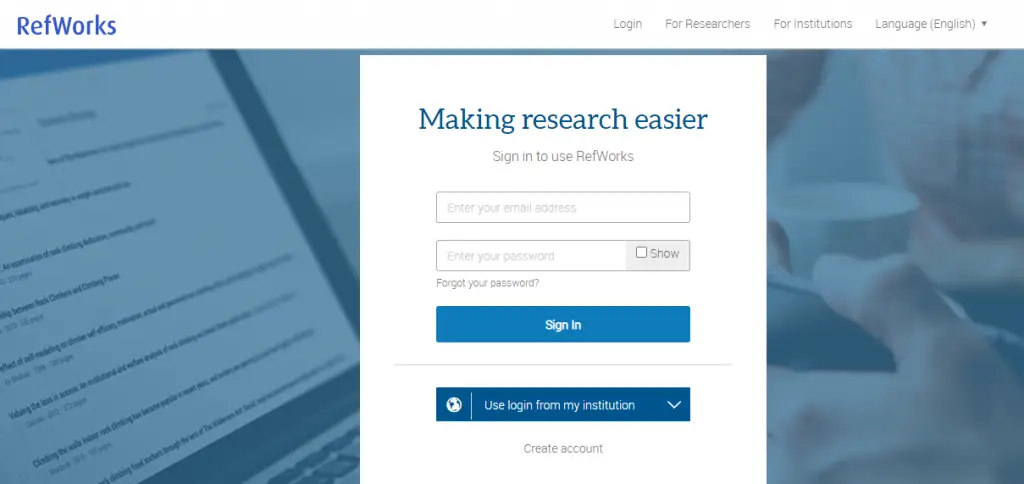
RefWorks is a widely favored literature review tool, renowned for its user-friendly interface and efficient features. Researchers are drawn to this tool for its ability to simplify the research process, offering seamless organization, storage, and annotation of references.
With advanced search functionalities, users can swiftly locate relevant sources, saving valuable time. Moreover, RefWorks supports collaboration, enabling multiple researchers to work together on projects.
While RefWorks is highly regarded, there are a few factors to keep in mind. Users should exercise caution in verifying the accuracy and reliability of the retrieved sources. Diligent evaluation is necessary to maintain research integrity.
Additionally, occasional technical glitches and slow performance have been reported, and limited integration options with certain citation styles and reference managers may pose challenges.
Despite these considerations, RefWorks remains an invaluable asset for researchers seeking an efficient and comprehensive literature review tool. Its user-friendly features and intuitive design make it an excellent companion for academic exploration and discovery.
💸Pricing
- RefWorks offers different pricing plans depending on the user’s needs. The exact pricing details may vary, but typically, RefWorks offers individual subscriptions on a monthly or annual basis.
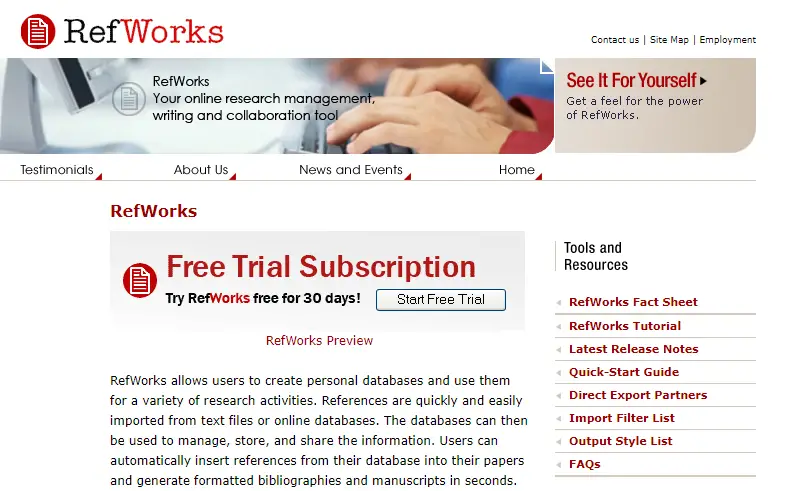
#5. Papers – Reference management for researchers, by researchers
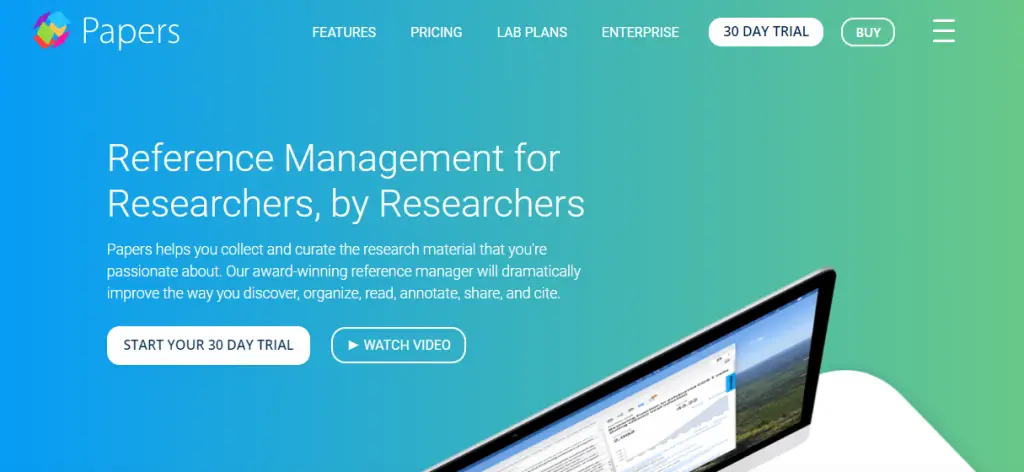
“Papers” is a popular literature review tool favored by researchers for its user-friendly interface and powerful features. It offers efficient management and organization of scholarly articles, enabling users to search, download, and store relevant literature with ease.
The tool’s citation management feature simplifies the referencing process, saving researchers valuable time. However, it’s important to be aware that “Papers” may not include every article ever published, necessitating the use of additional resources for a comprehensive review.
Some users have reported occasional software glitches, such as difficulties importing certain file formats or syncing across devices.
Despite its relatively high subscription cost, many researchers still find “Papers” to be a valuable investment in their research endeavors due to its comprehensive functionality and time-saving benefits.
💸Pricing
- Papers offers different pricing plans to cater to various user needs:
- Student: $3/month
- Academic: $5/month
- Corporate: $10/month
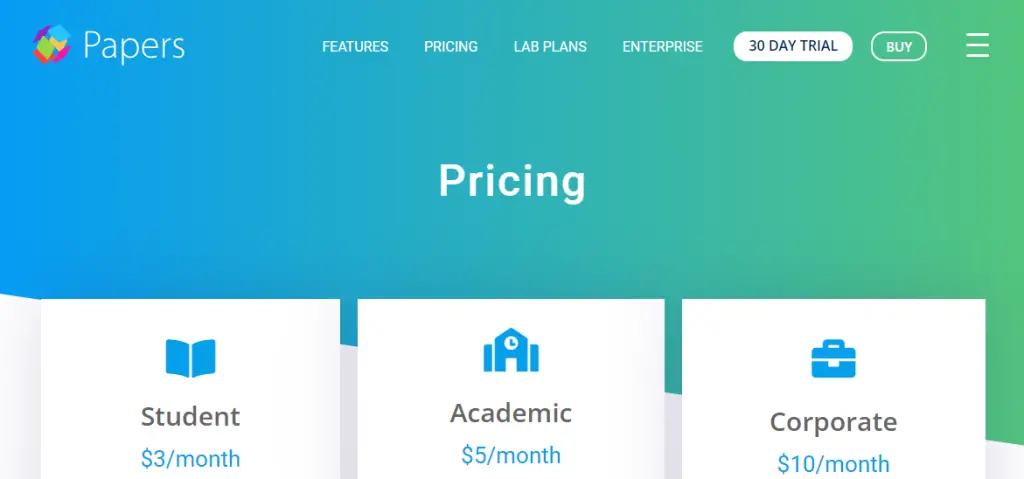
#6. JabRef – Free reference manager – Stay on top of your research

JabRef is a popular literature review tool among researchers due to its user-friendly interface and comprehensive features. It enables efficient reference management and citation generation, making it an indispensable companion for scholars engaged in academic research.
With JabRef, users can easily create and maintain a centralized library of references, facilitating seamless searching, sorting, and categorization of relevant sources. The tool supports various citation styles, ensuring accuracy and consistency in academic writing.
However, users should be aware that JabRef primarily focuses on reference management and citation generation, lacking advanced analysis and interpretation features. While it offers extensive customization options, beginners may find the initial setup and learning curve slightly challenging.
Additionally, there may be occasional issues with importing metadata from specific databases and compatibility with certain operating systems.
Nonetheless, JabRef’s active community addresses these concerns through regular updates and user support. Overall, JabRef is a valuable tool for researchers, simplifying reference organization and contributing to more efficient and accurate scholarly work.
#7. Citavi – Best reference management software for writing
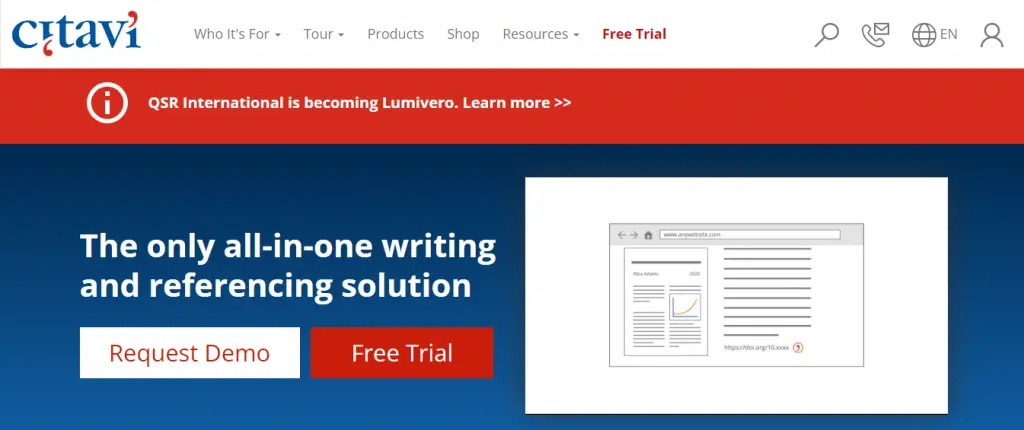
Citavi is a widely acclaimed literature review tool favored by researchers for its ability to streamline the research process. With its user-friendly interface and powerful features, it simplifies the gathering, organization, and annotation of research materials.
The tool’s citation management capabilities save time and effort, while its collaborative features facilitate effective teamwork among researchers.
Although Citavi may have occasional technical glitches and a learning curve, the software’s regular updates address these issues, ensuring a smoother user experience. Overall, Citavi is a popular choice for scholars looking for an efficient and comprehensive tool to enhance their literature review process.
💸Pricing
- Citavi offers different licensing options depending on the number of users and the type of institution:
- Citavi for Windows – Business: $379 per user
- Citavi for DBServer – Business: $449 per user
- Citavi for DBServer – Academic: $289 per user
- Citavi for Windows – Academic: $249 per user
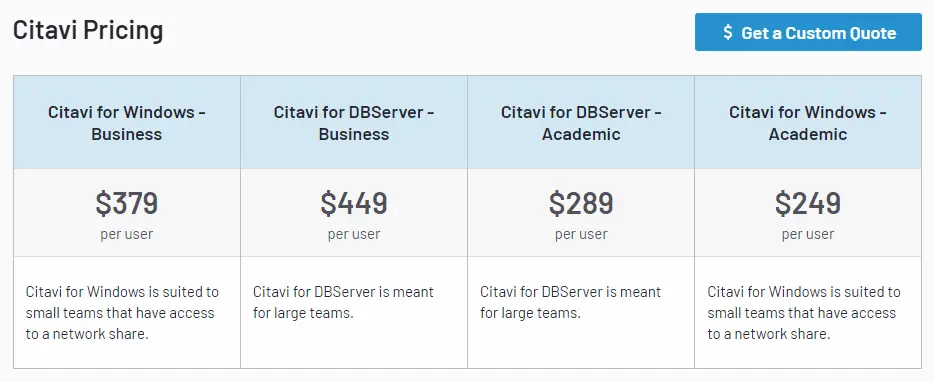
Final Thoughts
In the realm of research, precision and organization are paramount. With the best reference and citation management tools, researchers can soar to new heights of efficiency and credibility.
Seamlessly manage your sources, effortlessly create citations, and unlock the true potential of your scholarly pursuits. Stay ahead of the curve and harness the power of these top-notch tools, trusted by researchers around the globe. Elevate your research game and leave no room for error.
The world of citations awaits your mastery.
FAQs
Q1. Which are the best reference managers and citation managers that researchers highly recommend?
Researchers highly recommend several cutting-edge tools that excel in managing references and citations, commonly referred to as reference managers and citation managers. Some of the top-notch options include EndNote, Mendeley, Zotero, and RefWorks.
These tools offer researchers efficient organization, storage, and citation capabilities, catering to diverse research needs and preferences.
Q2. What are some popular reference and citation management tools available for researchers?
Some popular reference and citation management tools include:
- Zotero: An open-source tool that allows you to collect, organize, cite, and share research sources.
- Mendeley: A platform that combines a reference & citation manager, PDF organizer, and social network for researchers.
- EndNote: A comprehensive tool that enables researchers to search, organize, and format references and create bibliographies.
- RefWorks: A cloud-based platform that simplifies the process of managing references and generating bibliographies.
- Citavi: A tool that supports reference management, knowledge organization, and task planning for academic researchers.
Q3. What features should I look for in a reference and citation management tool?
When choosing a reference and citation management tool, consider the following features:
- Import and export options for references from various sources.
- Compatibility with popular word processors for easy citation insertion.
- Support for different citation styles.
- Collaboration features to share references with colleagues.
- PDF management capabilities, such as annotation and organization.
- Accessibility across multiple devices and platforms.
- Integration with academic databases for easy search and retrieval of references.
Q4. Are there any free reference and citation management tools available?
Yes, several reference and citation management tools offer free versions with limited features. Zotero and Mendeley, for example, have free plans that provide essential functionality. These free versions are often sufficient for many researchers’ needs.
However, some advanced features may require a subscription or premium membership.
Q5. Can reference and citation management tools help with formatting citations in different styles?
Yes, one of the primary benefits of reference and citation management tools is their ability to format citations in various styles, such as APA, MLA, Chicago, and more.
These tools typically offer built-in citation style libraries and allow users to switch between styles with ease. This feature saves time and ensures that your citations and bibliographies are formatted correctly according to the chosen citation style.


